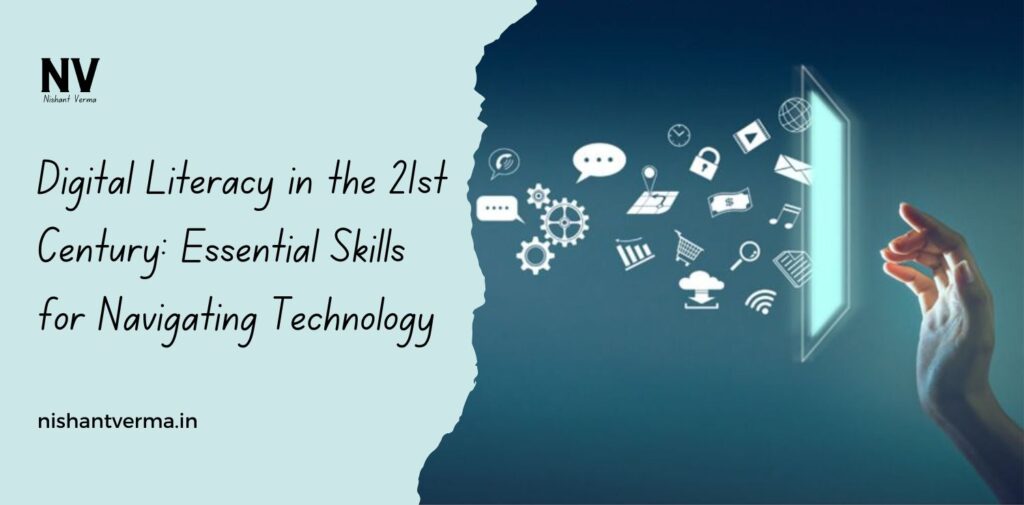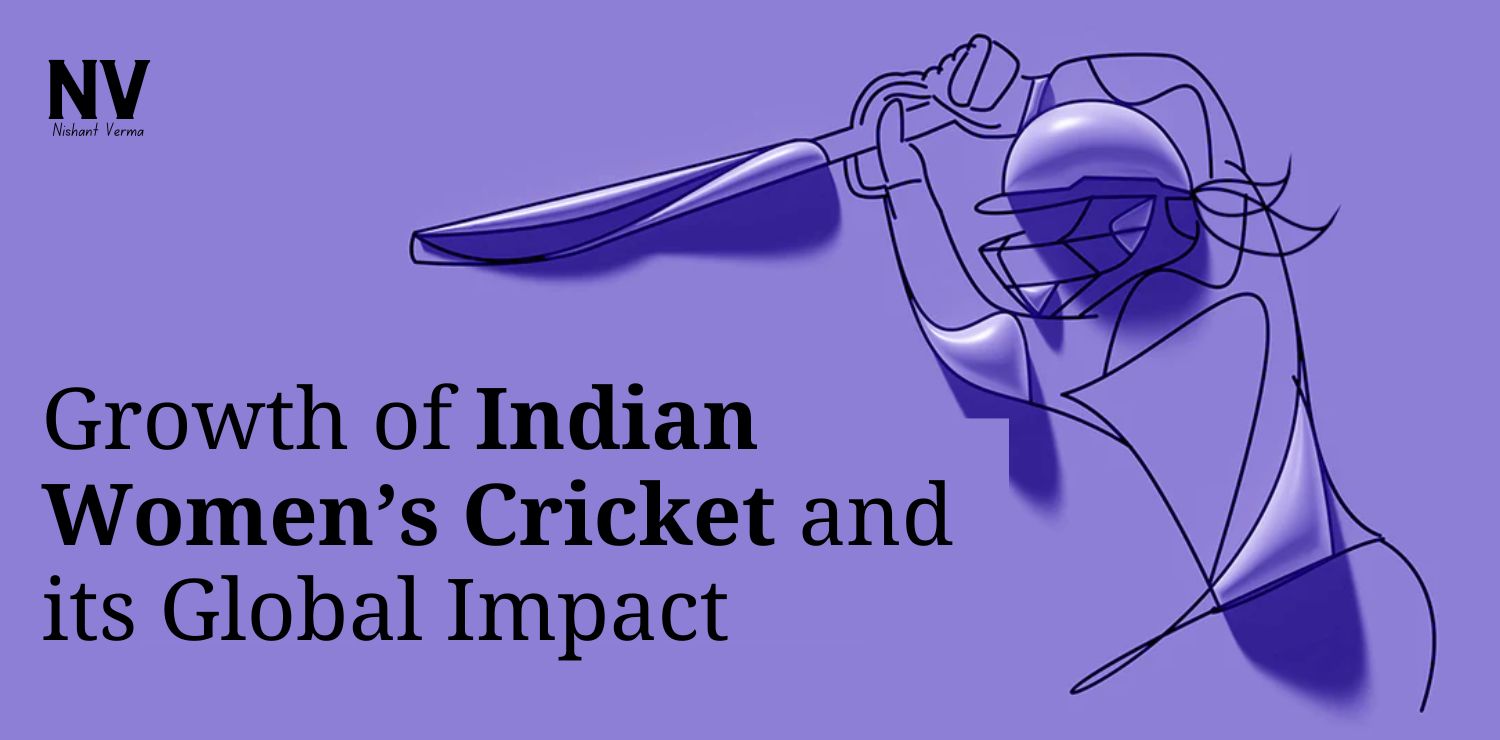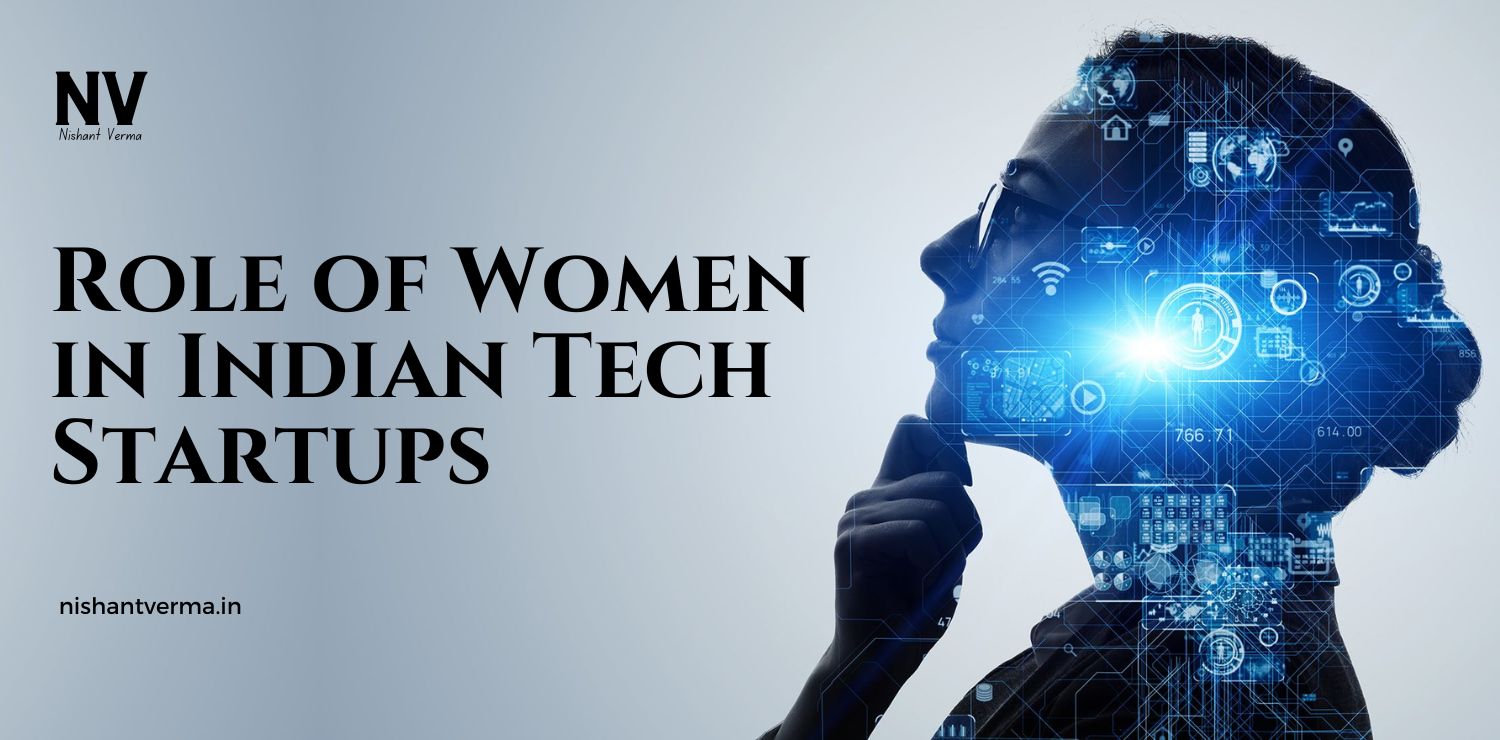In today’s fast-paced world, technology is everywhere. From smartphones to social media, from online education to digital banking, technology has become an essential part of our daily lives. In fact, it’s difficult to imagine a day without using some form of technology, whether it’s for work, communication, entertainment, or shopping. But with all this digital advancement, one important question arises: Are we truly ready to navigate this digital world effectively?
This is where digital literacy comes in. Digital literacy refers to the ability to use technology effectively, critically, and responsibly. It’s not just about knowing how to use a computer or a smartphone; it’s about understanding how technology works, how to access information, and how to communicate in the digital world.
For the people of India, digital literacy is particularly important as the country embraces rapid technological growth, especially in education, healthcare, banking, and even government services. In this article, we’ll dive into what digital literacy is, why it matters, and the essential skills you need to be digitally literate in the 21st century.
What is Digital Literacy?
Digital literacy is more than just knowing how to use a computer or smartphone. It includes the ability to find, evaluate, and create information using digital technologies. This means being able to navigate the internet, understand digital content, protect your online privacy, communicate effectively on digital platforms, and solve problems using technology.
In India, the government has been focusing on increasing digital literacy through initiatives like Digital India, which aims to make government services available online and provide digital education to millions of people, especially in rural areas. However, digital literacy goes beyond just knowing how to use digital tools; it also includes understanding the impact of technology on society and knowing how to use it safely and responsibly.
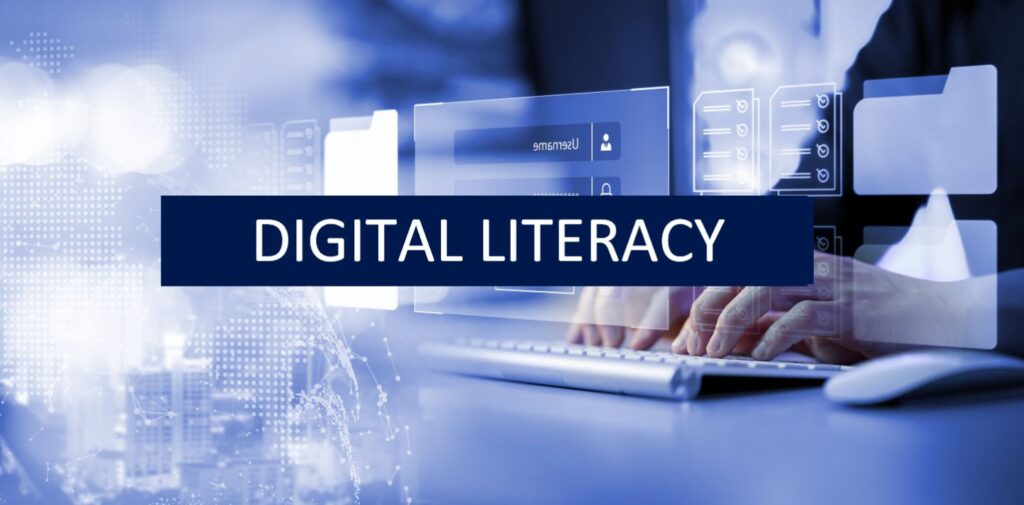
Why Digital Literacy is Important in India
As India continues to grow as a global technology hub, digital literacy has become a critical skill. Whether it’s for job opportunities, accessing government services, or participating in the global economy, being digitally literate has numerous benefits.
Here’s why digital literacy is so important for everyone, especially in India:
- Access to Information: The internet is a vast ocean of information, and knowing how to navigate it can open doors to endless learning opportunities. Whether you’re looking for job information, health tips, or educational resources, being digitally literate means you can access the right information when you need it.
- Employment Opportunities: As more jobs require computer skills and the ability to work with technology, digital literacy becomes essential for career growth. In India, many industries, including IT, healthcare, banking, and education, require workers to have basic digital skills. Not knowing how to use technology can limit career prospects.
- Government Services: With initiatives like e-governance and Aadhaar, the Indian government is pushing for digital access to services like subsidies, pensions, and tax payments. Knowing how to use these services online can save time and effort.
- Financial Inclusion: Digital banking has become the norm in India, especially after the launch of initiatives like UPI (Unified Payments Interface) and DigiLocker. With digital literacy, you can access banking services, manage your finances, and make online transactions easily and securely.
- Social Participation: Social media and digital platforms have become vital tools for communication, especially in India’s diverse society. Digital literacy helps you stay connected, whether it’s with family, friends, or participating in discussions on social issues.
- Security and Privacy: As more personal information is stored and shared online, understanding how to protect your digital identity is more important than ever. Digital literacy helps you recognize and avoid online threats such as scams, hacking, and privacy violations.
Key Digital Literacy Skills for the 21st Century
To be digitally literate, you need to master a range of skills. Let’s break down the key skills that will help you navigate technology with confidence and ease:
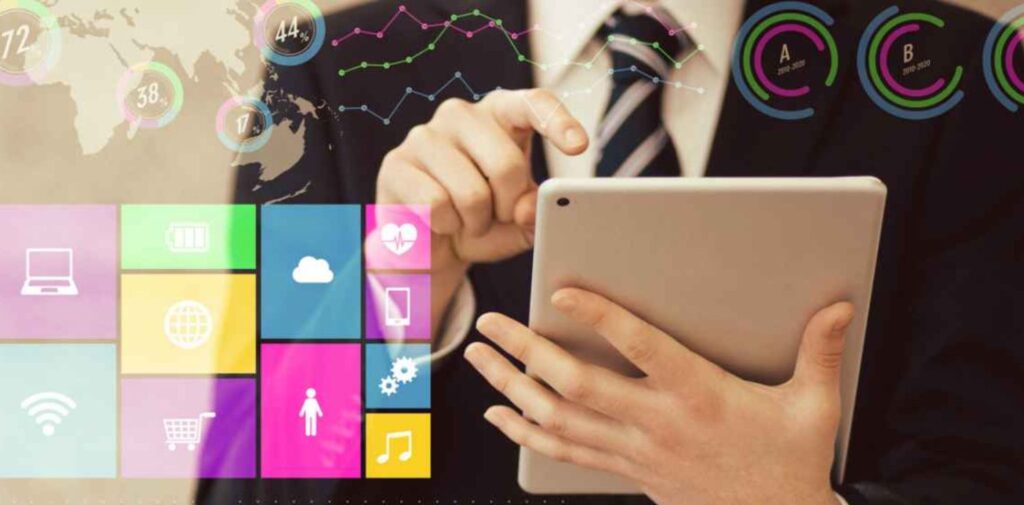
Basic Computer and Smartphone Skills
The first step in digital literacy is having a basic understanding of how to use a computer or a smartphone. This includes knowing how to:
- Turn devices on and off
- Use an operating system (like Windows, Android, or iOS)
- Navigate files and folders
- Browse the internet
- Send emails and use messaging apps
For many people in rural India, the ability to use a smartphone has become more important than owning a computer. Mobile phones are often the primary means of accessing the internet, banking services, and government schemes. Therefore, knowing how to operate a smartphone efficiently is a fundamental digital literacy skill.
Internet Navigation and Search Skills
The internet is a treasure trove of knowledge, but only if you know how to use it effectively. Learning how to search for information efficiently using search engines like Google, and critically evaluating the information you find, is essential. This includes:
- Using keywords and search queries effectively
- Navigating websites and understanding how to find reliable information
- Understanding online search results and distinguishing between credible and unreliable sources
In today’s world, where misinformation can spread quickly, being able to distinguish between true and false information is crucial.
Social Media and Communication Skills
Social media platforms like Facebook, WhatsApp, Instagram, and Twitter have become integral parts of our daily lives. Knowing how to communicate respectfully and responsibly on these platforms is an essential skill. Digital literacy includes:
- Understanding how to use social media platforms for communication, education, and networking
- Respecting privacy by understanding how to control your online settings
- Recognizing the potential dangers of oversharing personal information
Social media also plays a major role in activism, education, and business. Knowing how to use these tools to share ideas and connect with others can be empowering.
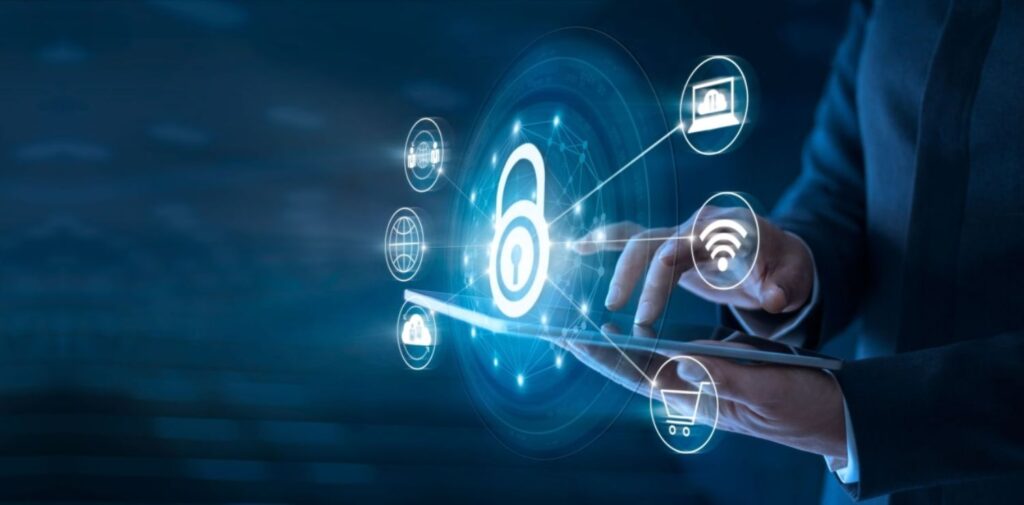
Cybersecurity and Privacy Awareness
As we spend more time online, protecting our personal information from cyber threats becomes increasingly important. Being digitally literate means understanding how to protect yourself from online dangers such as phishing, identity theft, and viruses. Key skills include:
- Setting strong passwords and using two-factor authentication
- Recognizing phishing emails and suspicious links
- Using secure websites (HTTPS) for online transactions
- Understanding the importance of privacy settings on social media platforms
With the rise of online banking, digital wallets, and other financial services, learning how to stay safe online is essential.
Basic Digital Problem-Solving
Not everything works perfectly in the digital world, and sometimes problems arise, whether it’s a slow internet connection, an app not working, or a device malfunction. Being digitally literate means having the skills to troubleshoot basic problems, such as:
- Restarting devices or apps
- Understanding how to update software and apps
- Resolving common connectivity issues (Wi-Fi, Bluetooth, etc.)
Having these problem-solving skills ensures that you can keep using technology without getting frustrated when things don’t go as planned.
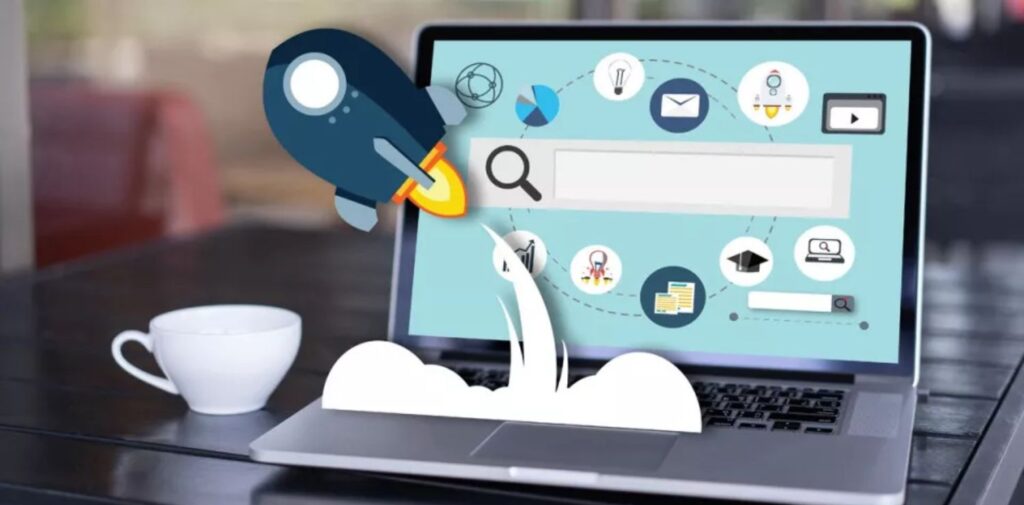
Digital Content Creation
The internet is not just for consuming information; it’s also about creating and sharing content. In today’s digital world, the ability to create content such as blogs, videos, social media posts, and presentations is an important skill. Learning how to:
- Write and format documents (Word, Google Docs)
- Edit photos and videos using basic tools (e.g., Photoshop, Canva)
- Share and upload content online (YouTube, Instagram, etc.)
These skills can help you build a personal or professional online presence, and even create new career opportunities.
Conclusion: Embracing the Digital World
In India, where digital transformation is rapidly changing the way we live and work, digital literacy has become a key skill for success in the 21st century. Whether you’re a student, a working professional, a business owner, or simply someone who wants to stay connected and informed, being digitally literate is crucial.
Digital literacy isn’t just about using technology; it’s about using it wisely and responsibly. With the right skills, you can not only make your life easier but also be an active participant in India’s digital future.
So, embrace technology, learn the essential digital skills, and take full advantage of the opportunities the digital world has to offer. The more you learn and grow in the digital space, the more confident and empowered you’ll feel navigating this ever-changing world of technology.

